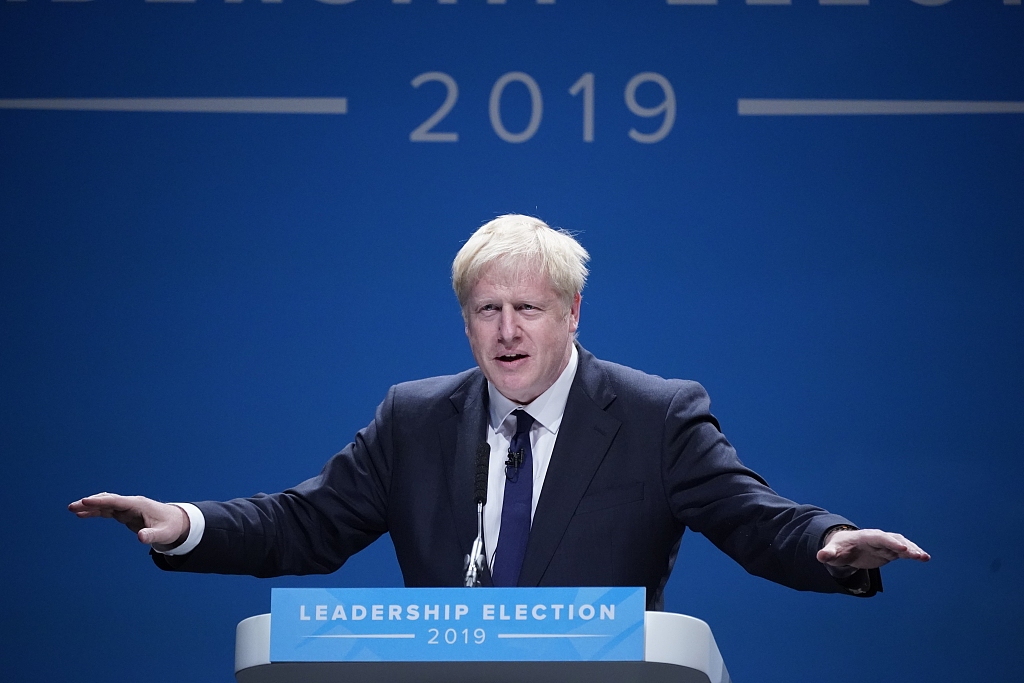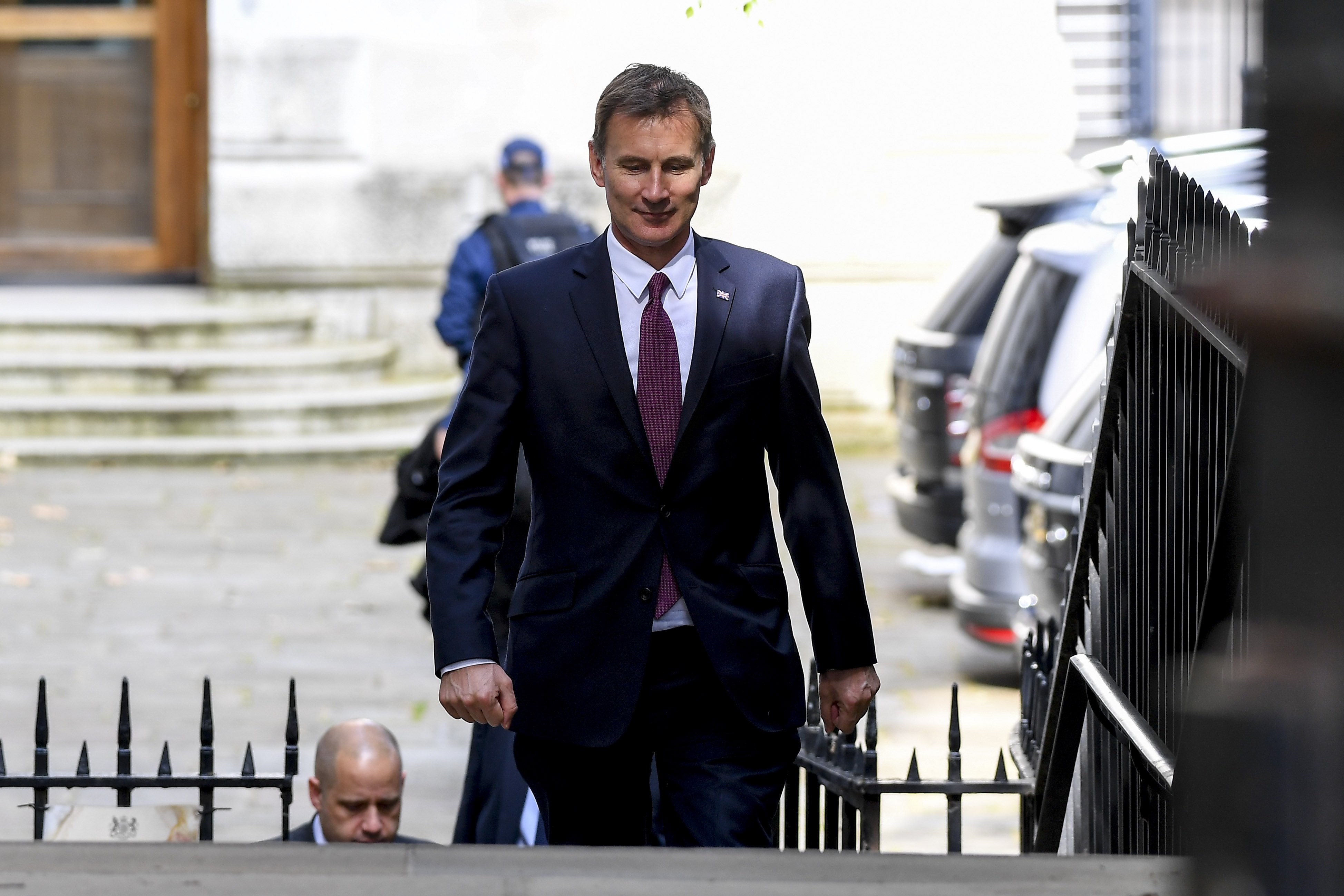Boris Johnson set to become British PM
- By Heiko Khoo
 0 Comment(s)
0 Comment(s) Print
Print E-mail China.org.cn, July 2, 2019
E-mail China.org.cn, July 2, 2019

Boris Johnson is set to win the race to replace Theresa May as British Prime Minister and leader of the Conservative Party. That is, unless some, as yet unknown, really serious crime emerges from his past to undermine his support.
Johnson is a colorful, ambitious and larger-than-life politician. His sister Rachel recalls that, as a child, when Boris was asked what he wanted to be when he grew up, he would answer "world king."
At 13 years of age he was sent to Eton, the elite school outside London that has produced a third of all Britain's prime ministers. There, his competitive spirit was given free reign, and from there he went to Oxford to study classics.
He was elected president of the Oxford Union, the debating society that emulates the rules of theatrical and combative parliamentary oratory, as well as its heckling.
After university, Johnson worked as a journalist for the Times and then the Daily Telegraph, both staunchly conservative newspapers. The latter stationed him in Brussels where he penned Eurosceptic articles, mocking EU regulations and rules. He returned to London and became the editor of the Spectator magazine. However, he also pursued his political career, and was elected a Conservative MP in 2001.
David Cameron was elected leader of the Conservative Party in 2005, becoming Prime Minister in 2010. Cameron was Johnson's rival at school and university. Johnson stood for election as Mayor of London, and held the post for eight years (2008-2016). His ability to appeal beyond the traditional conservative constituency made him an asset to his party. He oversaw the successful London Olympics in 2012 and grew in influence, stature and popularity.
During the 2016 Brexit referendum, Johnson championed "leaving" the EU, less out of conviction than out of a belief that this would strengthen his support base within the Conservative Party in any future leadership contest. However, when David Cameron resigned after the Brexit vote, Johnson's ambition was thwarted by one of his closest allies Michael Gove. That is when Theresa May ended up at the helm.
Nevertheless, Johnson's tactical approach to Brexit would still prove to be an essential stepping-stone to power. The complexity of the Brexit process consumed and destroyed Theresa May's premiership, and it has paralyzed parliament, and the British political system.
The inability to pass the Brexit agreement that May had negotiated with the EU in parliament produced a political vacuum that was filled by Nigel Farage and his Brexit Party, which stormed home as the biggest party in the European Parliament elections this past May.

When Theresa May's resignation triggered the present contest to replace her, the field was soon whittled down to a race between Boris Johnson and Jeremy Hunt, the present Foreign Secretary. Conservative Party members will pick one of them as they vote over the next month.
In the last three years Conservative Party members have stood overwhelmingly behind a pro-Brexit stance. Indeed, there has been an influx of new members who had specifically joined the party over the last two years to support leaving the EU by any means.
To head off a potential meltdown in Conservative Party support, Johnson has adopted the Brexit Party's belligerent posture that no matter what happens Britain will leave the EU on October 31. All this bodes well for Johnson's election, as polls of Conservative party members have consistently indicated they overwhelmingly support him.
So, it seems almost inconceivable that he will not win the vote to become Britain's PM in July.
However, numerous experienced politicians and journalists say it is delusional to think that anyone can push a no-deal Brexit through parliament by October 31. Parliament has already taken control over proceedings on Brexit and it is not going to permit a no-deal outcome.
Therefore, Jeremy Hunt says that pursuing such a course will lead to a successful no confidence vote in a Johnson led government, and then to a General Election, which Labor is likely to win. So far, EU leaders have categorically rejected reopening negotiations with Britain, no matter who is in office.
Johnson will do his best to avoid an election that could eviscerate the Conservative Party, but he may calculate that by adopting a bellicose posture against the EU he might win a snap election on a "Brexit now" ticket.
Heiko Khoo is a columnist with China.org.cn. For more information please visit:
http://china.org.cn/opinion/heikokhoo.htm
Opinion articles reflect the views of their authors, not necessarily those of China.org.cn.
If you would like to contribute, please contact us at opinion@china.org.cn.





